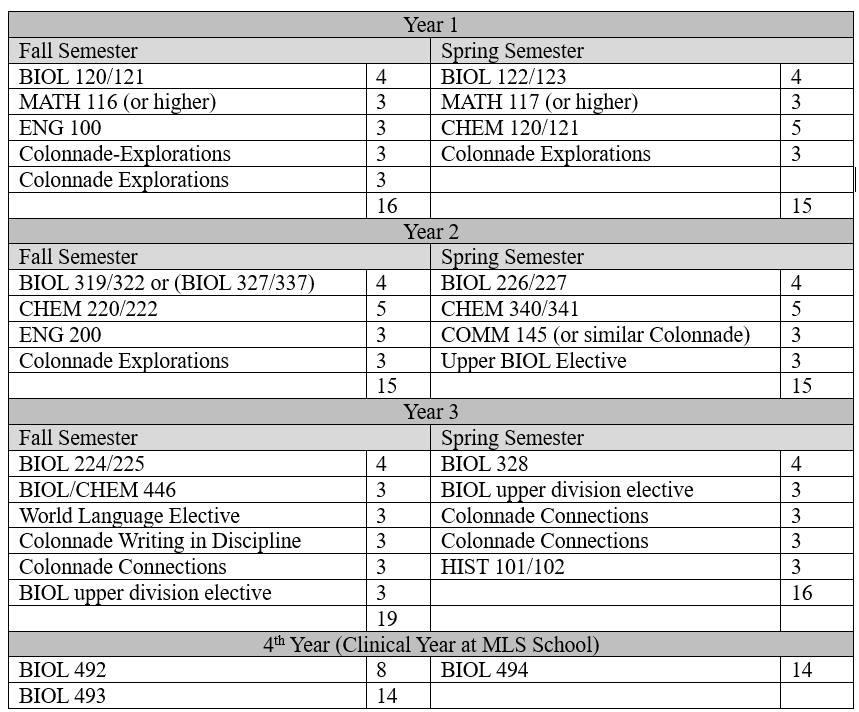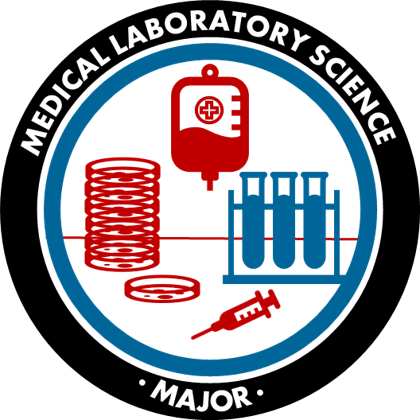Medical Laboratory Science
Find Your Field in Medical Laboratory Science
The Medical Laboratory Science (MLS) program leads to a Bachelor of Science (BS) degree after four years of study. This specialized degree prepares students for careers in clinical laboratories, such as those in hospitals, where specific professional credentials are required, credentials that other majors do not provide. Graduates of the MLS program are eligible to sit for the national certification exam administered by the American Society for Clinical Pathologists (ASCP). Passing this exam qualifies them to work in various diagnostic laboratories, including hospitals and clinical settings.
One key advantage of the Medical Laboratory Science (MLS) major is that it prepares students to enter the workforce immediately upon graduation, with no additional education or training required.
- Complete degree in four years ready to enter the workforce
- High demand job
- Meaningful career that helps others
- Opportunities to specialize or advance
- As medical laboratory scientists, graduates play a crucial role in patient care by analyzing body fluids, examining tissue samples, and identifying microorganisms to uncover evidence for and the cause of diseases like meningitis, diabetes, and cancer.
- These scientists may also be involved in tissue typing for organ transplants, conducting chromosomal studies for genetic counseling, detecting environmental pollutants, and performing screenings for drug abuse or accidental poisoning.
- Most MLSs work in hospital laboratories but can also find employment in physician’s offices, research facilities in universities and industries, public health centers, and veterinary clinics. Further training with law enforcement can lead to a career in Crime Scene Investigation (CSI).
- A bachelor’s degree in MLS with a passing score on the ASCP exam are required to become a Medical Laboratory Scientist.
- How to Become A Medical Laboratory Scientist.
- Job Outlook: There is a critical shortage of qualified Medical Laboratory Scientists (MLS), making this a high-demand career field.
- Median Salary: $61,500 ($40,000-99,000)
- The listed salary range is based on data from the Bureau of Labor Statistics and reflects the average earnings for both Clinical Laboratory Technicians (who hold a two-year technical college degree) and Medical Laboratory Scientists (who have a four-year bachelor's degree).
- The MLS program at WKU is designed for those pursuing a career as a Medical Laboratory Scientist (MLS), who typically earn at the higher end of this salary range.
- Careers in the Medical Laboratory
- Laboratory Science Careers
- Workforce Statistics
Opportunities to advance your career are available as an MLS. These may require earning a graduate degree or special certifications. These include·
- Laboratory Supervisor
- Educational Program Director
- Specialization in many areas including Cytology, Histology, Blood Banking and Microbiology
- Hospital Administrator
- Medical Scientist https://www.bls.gov/ooh/life-physical-and-social-science/medical-scientists.htm
- Doctor of Clinical Laboratory Science (DCLS)
- Laboratory Medical Director (MD, DO or PhD)
Know Your Path in Medical Laboratory Science
The Medical Laboratory Science (MLS) program at Western Kentucky University (WKU) is unique in its structure in that students complete the first three years of coursework (96 credit hours) at WKU, followed by a final year at an accredited and affiliated school of Medical Laboratory Science, where they complete an additional 36 credit hours. Affiliated schools are located in Nashville, TN, and Owensboro and Covington, KY; however, no clinical sites are available in Bowling Green. Admission to an MLS school for the clinical year is not guaranteed and requires a competitive application process, making strong academic performance crucial. Upon completing the clinical year, students receive 36 credit hours (designated as BIOL 492, 493, and 494), which transfer back to WKU in a single block. Graduates are then eligible to take the ASCP certification exam, qualifying them to work in a range of diagnostic and clinical laboratory settings.
Biology & Science Core
Cells, Metabolism, & Genetics + Lab • Ecology, Evolution & Diversity + Lab • Algebra • Biophysics + Lab • Chemistry + Lab • Professional Aspects of Biology
MLS Requirements
Animal Biology and Diversity Lecture + Lab • Microbial Biology and Diversity Lab • Introduction to Molecular and Cell Biology Lecture + Lab OR Genetics Lecture + Lab • Immunology • Chemistry II Lecture + Lab • Organic Chemistry Lecture + Lab • Biochemistry
MLS Biology Electives
[Students select 2-3 of these courses, based on their own interests, including any from the list above not taken as a requirement. Other choices include the below]
Genome Discovery Exploration • Molecular Genetics • Plant Pathology • Neurobiology • Techniques and Theory of Electron Microscopy • Cell Biology • Cell Biology Lab • Biochemistry • Biochemistry Lab • Recombinant Gene Technology • Cooperative Education in Biology • Independent Research in Biology
MLS Example Courses for Selection: General Education Requirements
Health Literacy for Consumers • Personal & Public Health • Environmental Science • Complementary Health Care • Human Values and Health Science
At A School of Medical Technology
BIOL 492 • BIOL 493 • BIOL 493
The clinical year will take place during your senior year at the clinical site. You will need a minimum of 36 hours of satisfactory clinical training in a school of Medical Laboratory Science (Medical Technology).
This immersive and applied learning approach will prepare you for your future career in Medical Laboratory Science, ensuring you are job ready upon graduation!
Find Your Place in Medical Laboratory Science
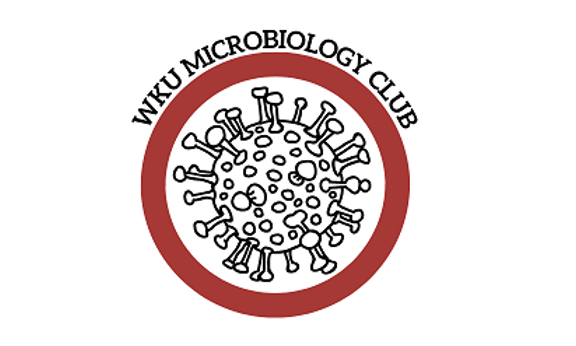
The Biology Department has lots of student organizations to chose from. These clubs are great way to make friends, get involved, and enhance your experience in our department! Microbiology Club, the Student Chapter of the American Society of Microbiology is a great option for MLS majors.
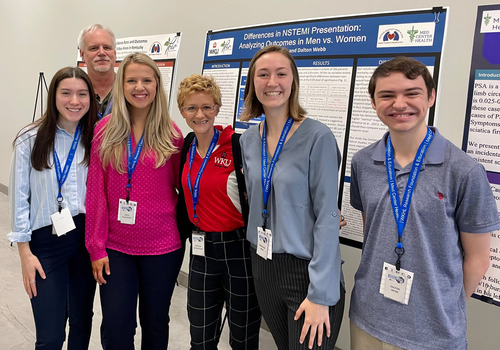
In the Science Process Course in Clinical Research, students develop and conduct a clinical research project in partnership with a Med Center Health. Upon completion, students present their research to a panel of Medical Center representatives for evaluation of relevance, practicality, and interest.
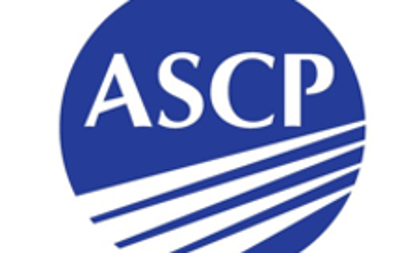
The American Society for Clinical Pathology (ASCP) is a professional organization for pathologists and laboratory professionals.The ASCP Board of Certification (BOC) verifies that an individual has the skills and knowledge to perform essential medical laboratory tasks.
In partnership with Med Center Health, students can complete a Patient Coordinator Internship. Patient Coordinators work to ensure quality care and by linking electronic medical records, patient data, and physician planning, with the goal of higher quality care and better patient outcomes.
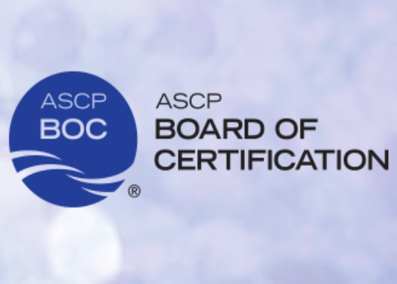
After completing your MLS degree, you can start planning for certification by passing your ASCP certification exam. The ASCP Board of Certification (BOC) is a patient-centric credentialing agency that elevates laboratory professionals through rigorous examinations, tailored to today’s laboratory medicine and pathology practice models.
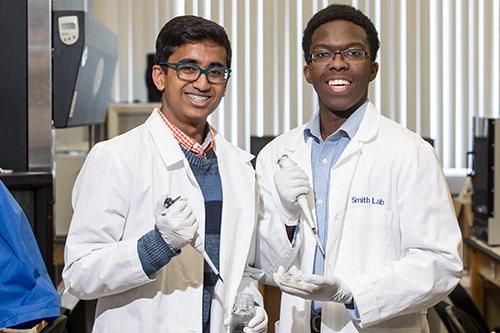
An internship is a great way to get hands-on exposure to different disciplines within biology. Internships can help you decide if your chosen career is right for you! They provide experiential hours required by many professional societies and you can get upper-level biology credit (BIOL 369) if you get a job in a clinic or hospital.
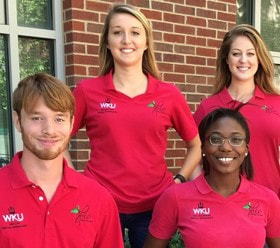
Biology Ambassadors are an elite group of students who assist with recruitment, retention, and advising. They help prospective students and visitors understand that the Biology Department is truly an exceptional place.

BioCoaches are talented upper division students that serve as peer mentors and learning assistants in our introductory courses. Serving in BIOL 120 is best for MLS students, and you'll receive course credit for playing a vital role in student success.
Next Chance to Register for Classes
Some of the links on this page may require additional software to view.


